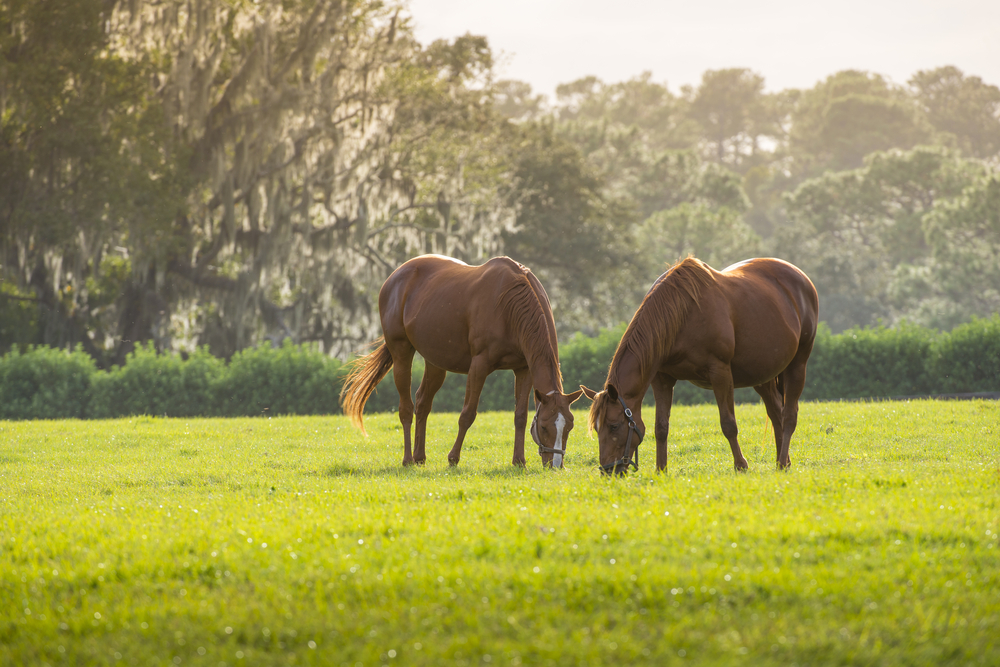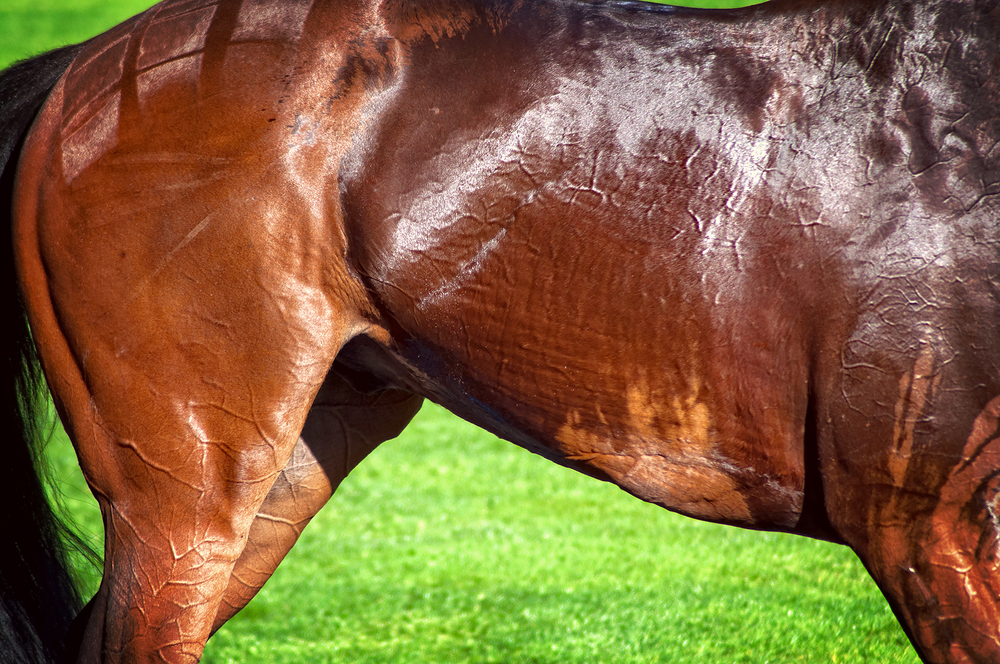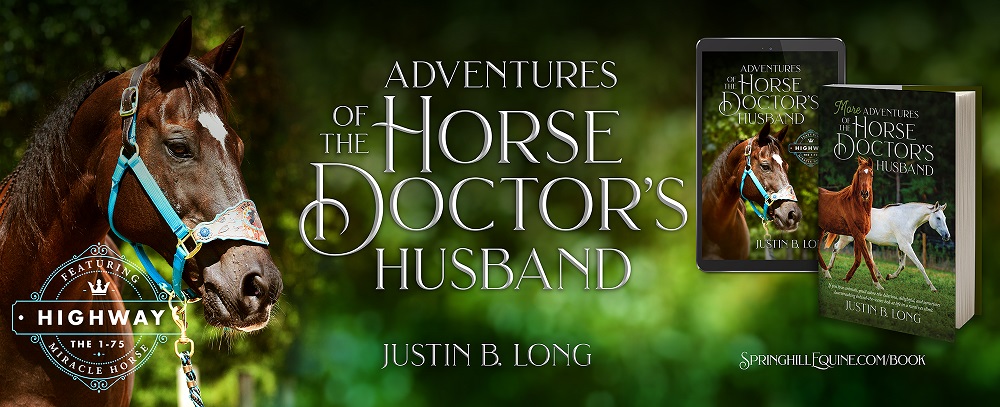Tuesdays with Tony
It’s hot out. I was working on my tan on the driveway at the Clinic the other day, and I could barely lay on the asphalt for 10 minutes. That made it extremely difficult to force the humans to drive around me. Overall not a great experience. It got me thinking about the conversations about eating for summer that go on around here. There are a lot of food conversations that happen at the Clinic, which obviously gets my attention. Most of the horse food conversations are along the lines of feed them less. That’s good basic advice, and we can tweak it to be even more appropriate for really hot weather.
What’s in a Feed?
Let’s start with what’s in feed. I’m going to focus on concentrates, or what you humans commonly call grain. Concentrates have protein, carbohydrates, fats, vitamins, and minerals. Ideally, no matter the season, you are only feeding enough concentrate to cover the things they aren’t getting enough of from roughage.
Ration balancers are called balancers because they balance the deficiencies of a roughage-based diet. They don’t add a lot of calories, which is great for easy keepers. But some horses need more of a concentrate, like Purina Strategy or Nutrena Safe Choice, to make up the calorie difference between what work is taking out and what they are putting in with hay. Those calories come from protein, carbohydrates, and fats.
Each of those creates heat when the body uses them for calories. Fat creates the least heat when broken down. This means if it’s summertime and your horse runs hot, consider adjusting the diet to be higher fat (with the help of my Docs of course). Don’t go willy nilly adjusting diets without professional input.
Vitamins and minerals are really, really important in the summertime. Know another word for some of those minerals? Electrolytes. Sweat is chock full of electrolytes, and horses sure do know how to sweat. A good concentrate provides a solid base of the electrolytes needed to perform that task. More on that in a moment.

Roughage
As a cat, I was not designed to be much of a hind gut fermenter. It’s one of the reasons we very rarely do that most common of horse things: fart. So banal. I can’t even imagine. Don’t even get me started on dog farts. Ugh!!! Anyway, I have gleaned a lot of roughage knowledge living in an equine (and soon to be all the animals) clinic. Roughage is incredibly important to horses. That fermenting hindgut needs it to stay happy. That being said, fermentation causes a pretty significant side effect (besides gas): heat production.
If you’ve read my extended works, you know I talk a lot about roughage in the winter helping keep horses warm, quality roughage preventing colic, and on and on and on about roughage. I’m about to drop more roughage knowledge on you humans. In the heat of summer many horses will back off hay consumption. They’re smarter than I think! Now I’m not saying a horse can suddenly go to less than the magical 1.5% – 2% of bodyweight per day of hay. What I’m saying is they will very often drop themselves back to that minimum percent all on their own. You may notice more hay in the stall, or left in turnout.
This is very true of hay, but does not count for grass, and that’s where they make up the difference if given a choice. Horses will increase their consumption of water-filled grass stems. Processing water helps to cool the body by keeping it well hydrated so it can sweat better. Also, fresh roughage, like grass, has less bulk than hay once it gets to the hindgut.
Many of you in my area have access to great pasture and so you may not have noticed a decrease in hay consumption. For those of you who do notice it, there are a few things you can do to help your horse continue to consume all the blessed forage without creating as much heat. First, try using short-stem forage like beet pulp or hay pellets and soaking them in water. That gets them roughage and water, double whammy! You can also try adjusting the type of hay you’re feeding. You may normally feed a lot of alfalfa, but your horse says Orchard is way better in the summer (or vice versa). Be sure the addition or change is gradual, though. No unscheduled visits with my Docs!!
Electrolytes!
Really, really, really important that your horse gets enough electrolytes in the summer! Horses sweat, and they sweat a lot. This goes along with the gas thing for me: I don’t get it. Sure, my paws may experience a bit of dampness, but I most definitely do not pour buckets of water from my skin. That sweat that’s pouring from the skin is chock full of potassium, sodium, magnesium, and in an oddity of horses, protein. If you’ve ever had a day where you just sweat buckets, then you know you simply don’t feel good when all those electrolytes are depleted. There’s a reason for that: those same electrolytes help your nerves work.
Humans mainly lose sodium when they sweat, and so plain ol’ salt works to replace most of your losses. Horses, as aforementioned, require a few more items. Most of the commercial electrolyte brands for horses take care of these needs pretty well. If you and your horse are aiming for high level stuff, like grand prix anything or eventing at the FEI levels, then I would recommend you get an equine nutritionist involved to be sure you’ve got all you need.

The rest of you can go with a scoop (2 ounces) of just about any electrolyte. Again, for most horses, the protein loss is covered by what’s in the concentrate they eat. It’s important to be aware of the need for protein, though, if you’re in a sweat-intensive activity. I find the protein thing kinda cool. Horse sweat contains protein because it needs to get out of the hair coat to the outside world where it can evaporate and do its job. You humans don’t have protein in your sweat because you don’t have all that much hair. Mother Nature is such a great problem solver!
Water
I don’t have much on this subject because it should be obvious. Make sure your horse has access to all the water they want. One great way to unexpectedly see my Docs during the heat of summer is to not provide a good water source. This is a great way to cause a huge impaction colic. That’s all I have to say about that.
Summer is hot. If your horse seems to be feeling it more than most, talk with my Docs. They can help you adjust things to make it all a little more bearable.
Until next week,
~Tony
P.S. The newest video is out on my YouTube Channel. It’s all about how to hold your horse for the veterinarian in various situations, and why. It’s a great way to both improve your horse knowledge and your ground skills, another double whammy! You’re welcome. Just make sure you subscribe to the Channel so you get notified when new videos come out!
Tuesdays with Tony is the official blog of Tony the Clinic Cat at Springhill Equine Veterinary Clinic in Newberry, Florida. If you liked this blog, please subscribe below, and share it with your friends on social media! For more information, please call us at (352) 472-1620, visit our website at SpringhillEquine.com, or follow us on Facebook!
[jetpack_subscription_form title="Subscribe to Whinny's Wisdoms"]

